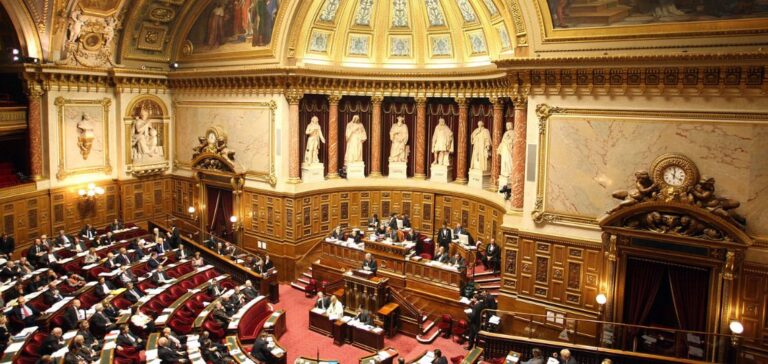The senators groomed Wednesday in committee a text of the socialist deputies against the “dismantling” of EDF, by removing the first article providing for a “nationalization” of the energy company, considered unnecessary in view of the takeover bid initiated by the State.
The bill of the deputy Philippe Brun will be examined next Thursday in first reading in the Senate, with a right-wing majority.
It was adopted at first reading in the National Assembly against the government’s advice, with the support of all the oppositions.
In committee, the senators adopted amendments by the LR rapporteur Gérard Longuet (LR) deleting the nationalization procedure provided for in Article 1, replaced by the objective of a 100% state ownership of EDF’s capital by January 1, 2024.
According to the rapporteur, this “nationalization” is “of no practical use and constitutes a factor of legal insecurity” in the current takeover operation. The courts are due to hand down their decision on May 2 in the battle between small EDF shareholders and the French state, notably over the share buyback price, which is considered too low.
In reaction, the electricians and gas workers claimed Wednesday an “action of putting in sobriety energy momentary” – to understand a voluntary cut of the current – of the parliamentary permanence of Gérard Longuet, in Bar-le-Duc, an action confirmed to the AFP by the direction of Enedis.
The CGT activists also claim the cutting of radars in the Haute-Marne and Meuse, as well as the “shutdown” of a wind farm. In particular, they reproach the senator for having modified article 2 of the bill and thus giving EDF the possibility of “selling its subsidiaries to the private sector”.
As of February 8, “at the provisional closing of the offer”, the State held 95.82% of EDF’s capital.
The text voted by the senators in committee aims to enshrine in law the State’s ownership of EDF, while maintaining the presence of employee shareholders, up to a limit of 2% of the capital.
Another amendment by the rapporteur aims to extend the benefit of regulated electricity sales tariffs to all very small enterprises (VSEs) and small municipalities.






















